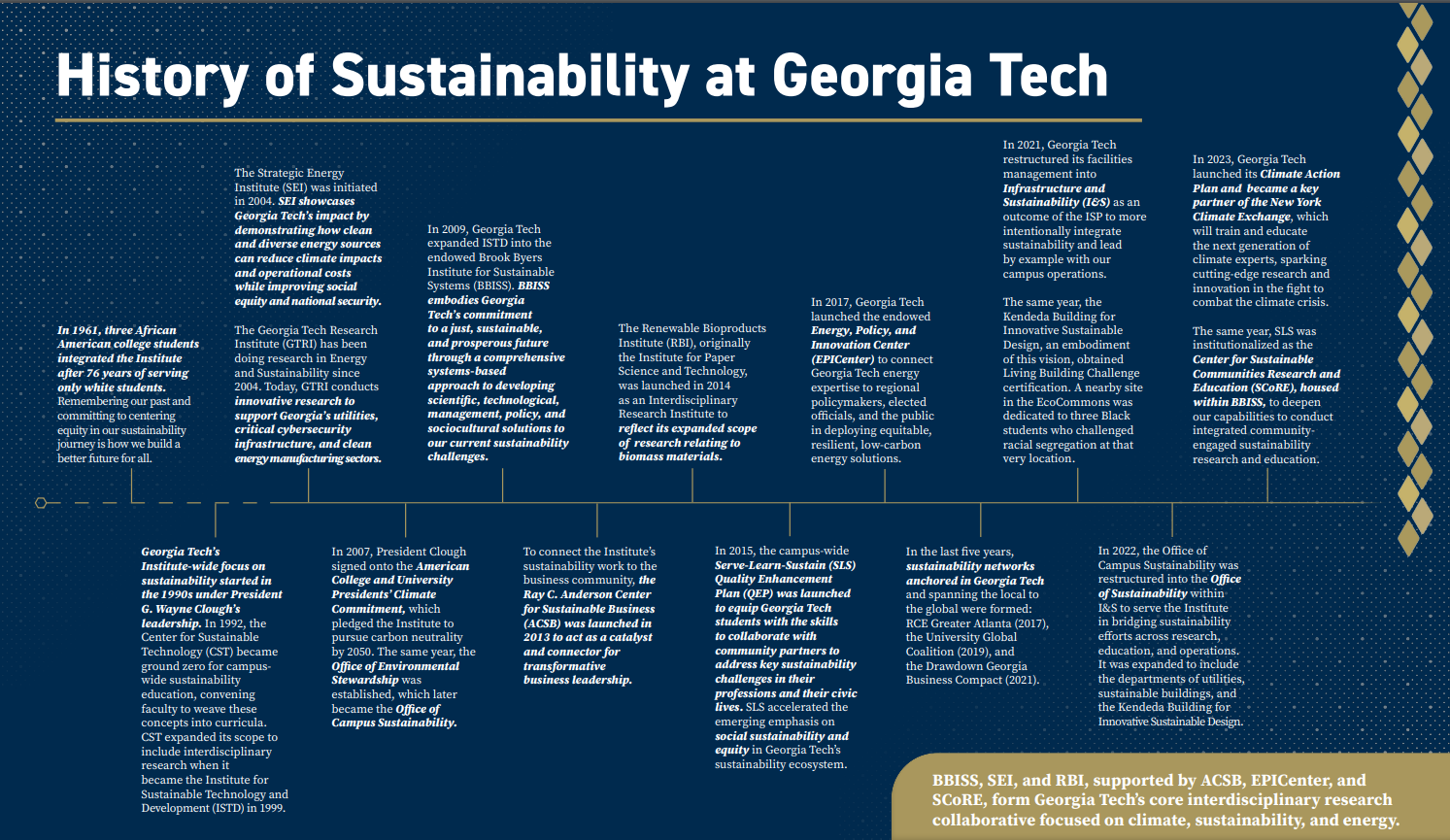History of the BBISS
Georgia Tech’s formal approach to sustainability began in 1992 when it received a $1 million grant from the General Electric Foundation to establish the Center for Sustainable Technology (CST). Under the direction of Dr. Carol Carmichael, the Center provided a foundation for campus-wide education on the principles of sustainability and brought together faculty to weave these concepts into the curricula.
On Earth Day 1999, the Center expanded to become the Institute for Sustainable Technology and Development (ISTD). Led at various times by Carmichael, Professor Bert Bras, and Professor Charles Liotta, the ISTD continued to serve as Georgia Tech’s chief advocate on sustainability issues – developing and implementing comprehensive curriculum, research, and campus management programs.
The Institute expanded again with a generous gift and was renamed the Brook Byers Institute for Sustainable Systems (BBISS) in 2009. BBISS embodies Georgia Tech’s commitment to a sustainable and prosperous future through a comprehensive and innovative systems-based approach to creating technological, management, and policy solutions to challenges facing society in the 21st century.
This video highlights the thirty year anniversary (in 2022) since Georgia Tech established CST and formally began an initiative to move towards sustainability.
The timeline that follows provides a broader view of the history of sustainability at Georgia Tech and BBISS’ central role in its evolution.




